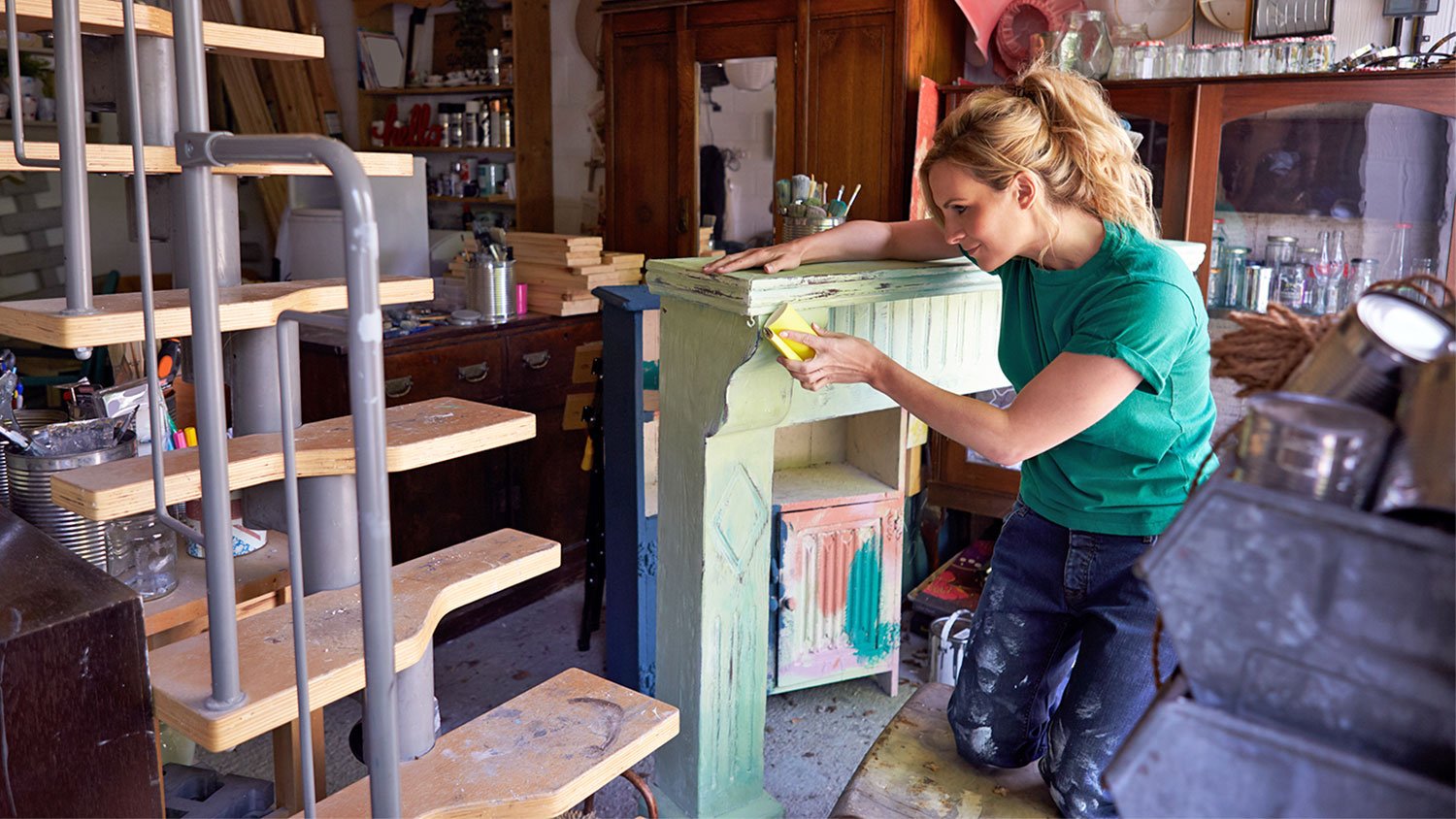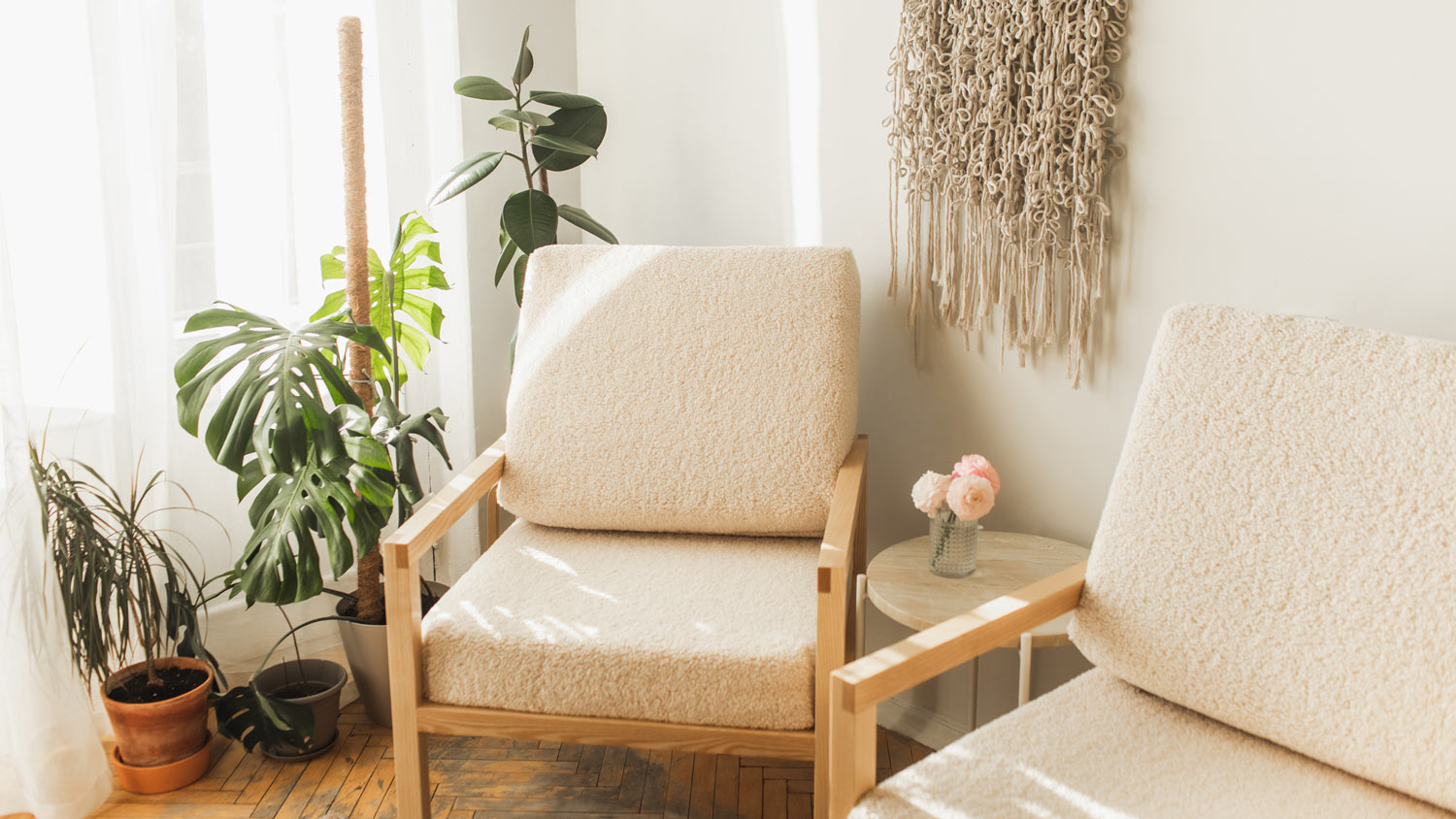
Wondering how much it costs to refinish a table? Get average prices, cost factors, and tips to help you budget and choose between DIY or hiring a pro.
Furniture refinishing costs depend on your project and location. Check with a local pro for your specific job.
Murphy bed installation costs most homeowners $2,000 to $4,000, averaging $3,000.
The biggest cost factors are bed type, size, materials, and labor, as well as any custom features or finishes.
Adding a Murphy bed can boost your home’s functionality and appeal, offering a strong return on investment for space-challenged rooms.
Professional Murphy bed installation supports safety, smooth operation, and long-term durability.
Consider the cost of add-ons, such as shelving or integrated outlets, which can increase your project budget.
This article was created using automation technology and thoroughly fact-checked and edited by an Angi Editor in accordance with our AI policy.
Murphy bed installation costs an average of $3,000, with most homeowners spending between $2,000 and $4,000. Prices vary depending on bed size, materials, and customization options. Labor, delivery, and add-ons can further affect your total investment. Understanding these factors helps you budget for a safe and functional space-saving solution.
Let’s look at the main factors that shape the cost of adding a Murphy bed to your home. Your choices in type, size, materials, and brand all contribute to the final price.
Murphy beds come in several types, each with distinct installation requirements and costs:
Wall-mounted beds attach directly to wall studs and are among the most common.
Freestanding models don’t require wall anchoring but may take up more floor space.
Vertical beds fold down from the long side, while horizontal beds fold from the short side—ideal for rooms with lower ceilings.
Cabinet-style beds disguise the bed as cabinetry when closed, and desk-integrated beds combine a workspace with sleeping quarters.
Custom designs are tailored to unique needs or spaces and often carry the highest cost due to specialized labor and materials.
| Type | Description | Average Installation Cost |
|---|---|---|
| Wall-mounted | Attaches to the wall, standard fold-down | $1,000–$3,000 |
| Freestanding | No wall anchoring, often bulkier | $1,200–$2,800 |
| Vertical | Folds down from the long side, needs more ceiling height | $1,500–$3,500 |
| Horizontal | Folds from the short side, fits lower ceilings | $1,500–$3,800 |
| Cabinet-style | Looks like cabinetry when closed | $2,000–$5,000 |
| Desk-integrated | Features built-in desk | $2,500–$6,000 |
| Custom | Designed for specific needs or spaces | $3,500–$15,000+ |
Each type of Murphy bed has pros and cons. Wall-mounted and vertical beds save the most space but may require wall reinforcement. Freestanding and horizontal beds are easier to move but take up more room. Cabinet and desk-integrated options add functionality but increase the price.
Standard Murphy bed sizes include twin, full, queen, and king. Larger beds require more materials and labor, increasing the installation cost. Room dimensions and ceiling height are important to consider, since vertical beds need more clearance, while horizontal beds can fit in tighter spaces.
| Size | Description | Average Installation Cost |
|---|---|---|
| Twin | Fits one, compact footprint | $1,500–$2,200 |
| Full | Standard two-person bed | $1,500–$3,000 |
| Queen | Most popular size | $1,500–$4,000 |
| King | Largest, needs more space | $2,500–$6,000 |
Choosing the right size ensures comfort without overwhelming the room. Always measure carefully and account for the clearance needed when folding the bed up and down.
The materials you select for your Murphy bed make a noticeable difference in both appearance and cost. Solid wood is durable and attractive, but comes with a higher price tag. Plywood and MDF (medium-density fiberboard) cost less but may not last as long. Metal frames offer strength and a modern look, while laminate is budget-friendly and easy to clean.
The quality of hardware, including hinges, pistons, and handles, also impacts longevity and cost. Optional finishes, such as custom paint, veneer, or stains, can personalize your bed and add to the project budget. If you choose premium finishes or hardware, expect to pay more upfront, but you will benefit from longer-lasting performance.
Brand reputation and quality can influence Murphy bed installation cost. Well-known brands often charge more due to the use of higher-quality materials, better warranties, and additional included features. Popular brands range from $1,500 to $5,500 for standard models, with custom or luxury brands costing more.
Local or custom manufacturers may offer unique designs but could lack extended warranties or robust customer support. National brands may provide better hardware and a smoother installation process, while local companies can offer personalized service.
When comparing brands, look at included hardware, warranty length, and the availability of replacement parts.
Now, let’s break down the main components of Murphy bed installation costs, including labor, delivery, haul-away, and service add-ons.
Murphy beds are installed by carpenters, handypeople, or specialized Murphy bed installers. Labor rates for these professionals range from $50 to $150 per hour, with some charging flat rates between $300 and $800 for standard installations.
Project complexity, wall type, and the need for room modifications can drive the labor cost higher. For example, installing a bed on a masonry wall or adding electrical outlets will require more time and expertise. Regional labor rates also affect your total cost; urban areas or regions with higher living costs often see higher installation fees.
Professional installation includes assembling the bed, securing it in place, and performing safety checks to ensure reliable operation.
Delivery fees for Murphy beds depend on distance, bed size, and delivery method. Expect to pay $100 to $400 for standard delivery. Some companies include delivery in the purchase price, especially for local installations.
Large or custom beds may cost more to deliver, especially if stairs, elevators, or tight hallways are involved. Always ask if delivery is included or charged separately to avoid surprises.
If you need to remove an old bed or furniture before installing your Murphy bed, haul-away services cost $50 to $200. This cost varies based on local disposal regulations and whether recycling is required. Some installers bundle haul away with delivery or installation, while others charge it as a separate service.
Many homeowners choose add-ons to maximize the function and style of their Murphy bed. Common upgrades include:
Integrated lighting: $100–$500
Shelving: $200–$1,000
Cabinetry: $500–$2,500
Power outlets or USB ports: $100–$250
Custom finishes: $200–$1,000
Safety upgrades: $50–$200
Mattress: $300–$1,500
Each add-on increases your total Murphy bed installation cost, so prioritize features that meet your needs and budget.
Homeowners often weigh the savings of DIY projects against the peace of mind that comes with professional installation. DIY Murphy bed installation costs include materials ($800 to $2,500), specialty hardware ($100 to $400), tools (if not already owned), and labor. You’ll also need to purchase or download plans ($0 to $100).
While DIY saves on labor, it requires strong carpentry skills, accurate measurements, and strict attention to safety. Improper installation risks safety hazards, wall damage, and voided warranties.
Professional installation costs more upfront but covers assembly, anchoring, and safety checks. Most pros complete the job in two to six hours, while DIY can take a full weekend or longer. If you’re not confident in your skills or lack the necessary tools, it’s best to hire a professional furniture assembler near you for Murphy bed installation.
Deciding whether to repair or replace your Murphy bed depends on the extent of the issue and the age of the bed. Repair is a good option for minor hardware issues, cosmetic damage, or beds that are still under warranty. Standard repair costs range from $80 to $500, depending on the issue.
Replacement is more cost-effective if the bed has major structural damage, outdated mechanisms, or requires frequent repairs. If the repair cost approaches 50% of the price of a new bed, replacement is recommended.
Consider the age of your bed, warranty status, and overall safety. Investing in a new Murphy bed may be a better long-term solution if your current one is outdated or unreliable.
Effective planning can help keep the cost of Murphy bed installation within budget. Consider the following tips to help save on your project:
Compare multiple quotes from local installers.
Choose standard sizes and materials over custom options.
Limit add-ons and upgrades to essentials.
Schedule installation during off-peak times for potential discounts.
Consider pre-assembled or kit options if you are comfortable with DIY.
Home is the most important place on earth, which is why Angi has helped more than 150 million homeowners transform their houses into homes they adore. To help homeowners with their next project, Angi provides readers with the most accurate cost data and upholds strict editorial standards. We extensively research project costs to develop the pricing data you see, so you can make the best decisions for you and your home. We rely on reputable sources, including the U.S. Bureau of Labor Statistics, academic journals, market studies, and interviews with industry experts—all to ensure our prices reflect real-world projects.
Want to help us improve our cost data? Send us a recent project quote to [email protected]. Quotes and personal information will not be shared publicly.
From average costs to expert advice, get all the answers you need to get your job done.

Wondering how much it costs to refinish a table? Get average prices, cost factors, and tips to help you budget and choose between DIY or hiring a pro.

Get transparent furniture refinishing cost information and learn average prices, cost factors, and ways to save before hiring a pro and starting your project.

Discover the average furniture reupholstery cost, what impacts pricing, and how to save money on your next project. Get expert tips and cost breakdowns.

If you’re looking into refinishing some furniture, here are some common furniture refinishing questions you can expect to discuss with a pro.

Should you restore or refinish furniture? The answer will depend on the extent of the damage and whether you want to update or maintain its current look.

Wondering how much it costs to reupholster a chair? Learn about average prices, key cost factors, and ways to save on your chair reupholstery project.